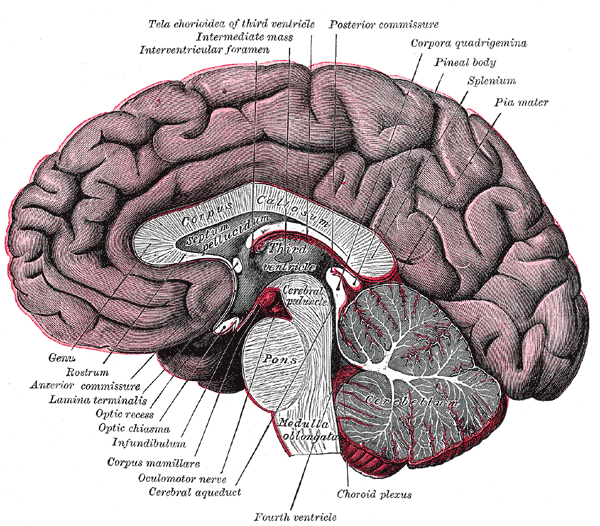As a longtime sufferer of depression, I've relied on pills designed to treat chemical imbalances in my brain. These pills are controversial, with conflicting opinions on whether they are really more effective than placebos. Millions of people swear by them, many claiming that they have clearly been effective in treating their depression. Of course, such data is anecdotal, as would be any that I could offer. I can say anyhow, that my depression has been somewhat reasonably managed for years.
When I first began taking the medication, about seven years ago, I did recall a significant feeling that my conscious state had been altered. Almost impossible to describe, it was as if a kind of numbness came over me, taking "the rough edges" off of things. My psychological history in the subsequent years was complicated. In some ways I did seem to feel a certain sense of relief. Yet a couple of years later, shortly after my first daughter was born, I attempted suicide. I had certainly entered a deeply depressed state, one in no small part induced by geographic and social isolation, as well as the stress of being the primary caregiver for a colicky infant, all while suffering from devastating chronic neck pain.
So in one sense the medication failed me, or at least was not effective enough to prevent suicidal depression. But the trouble with measuring the efficacy of antidepressant medications is that the population being treated suffers from an illness that is very difficult to properly diagnose, properly quantify, and much less understand the pathology of. To what extent was my depression and my behavior driven by brain chemical imbalances, and to what extent was it driven by my habit of mind, or cognitive framing of the world?
Philosophically, the debate over what consciousness is, or to what degree we can understand it, is contentious. Much of conscious human experience is not well understood, and little data exists to support hypotheses as to either what causes it, or what it even is. Thomas Metzinger, director of the Theoretical Philosophy Group and current president of the Association for the Scientific Study of Consciousness, defines consciousness as "the appearance of a world". It is a good start, but doesn't offer much of a clue as to where it comes from or what it in fact is.
There are many phenomena that we can't really
explain very well, and yet must start somewhere if we are to hypothesize
- especially if there are real-world consequences of our assumptions
either way. Critiques of materialism usually see people as assuming too
much, relying too readily on a physical framework as a best guess.
Critiques of the opposite - immaterialists? - see people as ignoring
what seem to be perfectly reasonable logical conclusions drawn from our
knowledge of the physical world.
I tend to fall into the latter camp. I'm reminded of the old
creationist thought experiment, the clearly "designed" phenomenon in the
natural world, such as Mt. Rushmore or a house in a desert, in which
physical processes are assumed to be incapable of such complexity. This
can be contrasted with a thought experiment designed to illustrate
Occam's Razor, where a broken, blackened tree is found in a field - in
the absence of clear evidence, one might assume any number of
explanations, some more fantastic than others. Yet the most likely, the
most reasonable explanation would be that lightening has probably
struck it down.
Surely, many biological processes - certainly those involving the brain
and/or consciousness - are lacking in a great deal of evidence. But
there is also much that we do know, and would be remiss in not taking
into full account, if not inferring even further material hypotheses. For my part, I look forward to advances in this exciting area of science. Not only for what medical breakthroughs it might provide in the treatment of psychiatric illness, but for what it might tell us about broader, older philosophical assumptions about human behavior and the social structures they inform.

No comments:
Post a Comment